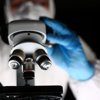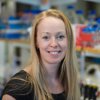Fritextsökning
Artiklar per år
Innehållstyper
-

Mathias Uhlén om kemipriset: ”Största nyttan är för förståelsen av människans biologi”
Årets Nobelpris i kemi gick till forskare som lyckats bygga och förutspå proteiners märkliga struktur. ”All medicinsk forskning har intresse för det här”, säger Mathias Uhlén, hjärnan bakom Human Protein Atlas.
-

AstraZeneca to use American AI platform for cancer trials
In a collaboration AstraZeneca will use an AI model from Israeli-American biotech Immunai to streamline its clinical trials in cancer.
-

An increasing number of people are falling ill with TBE – “Much more research is needed”
Tick-borne meningitis, or TBE, is an increasingly common disease in Sweden. Currently, there is a vaccine against the disease but no drugs. Researcher Anna Överby Wernstedt is studying the processes that occur in the brain during a TBE infection and hopes to contribute to developing a treatment.
-

From lab to patient – the art of developing new antibody therapies
For 25 years, Danish company Genmab has been developing antibodies and has managed to get several drugs all the way to the patient. Esther Breij has been along for much of the journey and has experienced setbacks, but also huge discoveries. “It’s amazing when you succeed,” she says.
-

Läkemedelsbolag misstänks för prissamarbete – razzior i Sverige och Danmark
Svenska Konkurrensverket och dess danska motsvarighet har genomfört tillslag mot flera företag som misstänks för otillåten samordning av prisnivåer på generiska läkemedel.
-

Sobi announces agreement with Enable Injections
Swedish biopharma Sobi has entered into an international development and distribution agreement with US drug delivery company Enable Injections.
-

Philips får ny Sverigechef
Den nederländska koncernen Philips har rekryterat Anna Rehman Linder till ny Sverigechef.
-

Företagare föreslås ta över klubban i Lundabolaget CLS
Både ordföranden och en styrelseledamot meddelar att de lämnar det skånska företaget Clinical Laserthermia Systems. Till ny ordförande föreslås företagaren Peter Max.
-

Johan Rockberg tilldelas årets Biotech Builders Award
Johan Rockberg, professor på KTH, har tilldelats priset Biotech Builders Award för “betydande bidrag på bioteknikområdet”.
-

AI-företag köper tillgång till vetenskapliga studier – ”Svårt att reagera som forskare”
Stora förlag för vetenskapliga tidskrifter har i miljonaffärer sålt tillgång till studier till techbolag som utvecklar AI-verktyg. Reaktionerna bland svenska forskare är blandade.
-

Anna Törner: Yes, I Am Sick, But Not Weak
”People often say that someone who is ill only has one wish—to get better. But I think that is not true. Someone who is ill also longs to be understood, to be respected, to not have their identity overshadowed by their condition”, writes Anna Törner in a column.
-

Tidigare Tobii-chef blir vd för Surgical Science
Tom Englund, tidigare toppnamn inom Tobii-koncernen, är nuvarande operativ chef för Instabee. Nu lämnar han budbolaget och återvänder till medicinteknikfältet när han blir vd för Surgical Science i oktober.
-

Gothenburg, the city of life science – We are ‘Little Boston’
Western Sweden is investing in life science within everything from advanced therapeutic drugs to femtech. At the same time, stakeholders are looking to other industries for inspiration and knowledge.
-

Solnabolag tar in 286 miljoner — utvecklar plattform för att studera cellkommunikation
Solnabaserade Moleculents målsättning är att utveckla en plattform för att studera kommunikationsnätverk mellan celler i vävnad. Nu har bolaget tagit in 286 miljoner kronor genom en investeringsrunda.
-

Nobel Prize winner Torsten Wiesel turns 100: “Old men like me should use their experience to help the young”
In 1955, a young Torsten Wiesel jumped on a boat to the US and embarked on a fabulous career as a neuroscientist, crowned with a Nobel Prize for his work. Now 100 years old, he looks back on an intense life and his upbringing in Stockholm, Sweden, which shaped his desire to help the vulnerable in society.
-

Lämnar tankesmedjan efter åtta år: ”Oerhört inspirerande att driva på innovation”
Catharina Barkman har under åtta år drivit den oberoende tankesmedjan Forum för Health Policy. I slutet av sommaren går hon vidare till nya utmaningar och nu blickar hon tillbaka på tiden, uppdragen och på hur svensk hälso- och sjukvård har utvecklats.
-

Nobelpristagaren Torsten Wiesel fyller 100: ”Gamla gubbar som jag ska använda erfarenheten till att hjälpa de unga”
Året var 1955 när en ung Torsten Wiesel hoppade på båten till USA och inledde en sagolik karriär som hjärnforskare med ett Nobelpris som kronan på verket. Nu fyller han 100 år och ser tillbaka på ett intensivt liv – och på uppväxten i Bromma som formade hans vilja att hjälpa samhällets svaga.
-

Innovative start-up helps doctors, scientists and industry balance coagulation risks
For many doctors caring for seriously ill patients, for example, in stroke units and cancer wards, maintaining the life-saving balance between bleeding and thrombosis is an ongoing challenge. In the late 1980s, scientists at Maastricht University in the Netherlands developed an innovative method, the thrombin generation assay (TGA), which provides a complete overview of a physiological process crucial for maintaining normal haemostasis.
-

“Conducting research at universities is becoming more and more like working at a research hotel”
The government wants Swedish research to focus on excellence and innovation, but can the two be combined? Life Science Sweden talks to Anna Falk, a professor at Lund University, about research policy, the constant hunt for funding in academia and what constitutes ‘fine research’.
-

Petter Hartman: ”Ökad kapacitet kräver innovation”
Om framtidens vårdbehov ska kunna mötas måste det systematiska innovationsarbetet hamna högre upp i prioriteringsordningen, skriver Petter Hartman i en krönika.
-

Substansnamn ska bli den röda tråden inom vården
Mer enhetliga namn på utbytbara läkemedel är målet för ett uppdrag som Läkemedelsverket fått av regeringen. Data för alla drygt 14 000 godkända läkemedel finns nu förberedda.
-

Carl Borrebaeck – professor and serial entrepreneur with a taste for speed
Award-winning cancer researcher, the founder of many listed companies, and constantly in the academic and commercial spotlight for decades. However, Carl Borrebaeck, Professor of Immunotechnology at Lund, is not yet satisfied. “We have a new, potentially super exciting project in the pipeline,” he says.
-

Ancient DNA provides new insights – “The immune system lost its job”
Ancient bone remains from our ancestors have provided new insights into the prevalence of multiple sclerosis. By looking back in time, researchers can provide a possible explanation for why the disease is more prevalent in northern Europe.
-

The Covid pandemic accelerated the development of cancer vaccine
The Covid pandemic gave a major boost to the vaccine field. The Danish biotech company Expres2ion Biotechnologies, which is developing a vaccine against breast cancer, testifies to this.